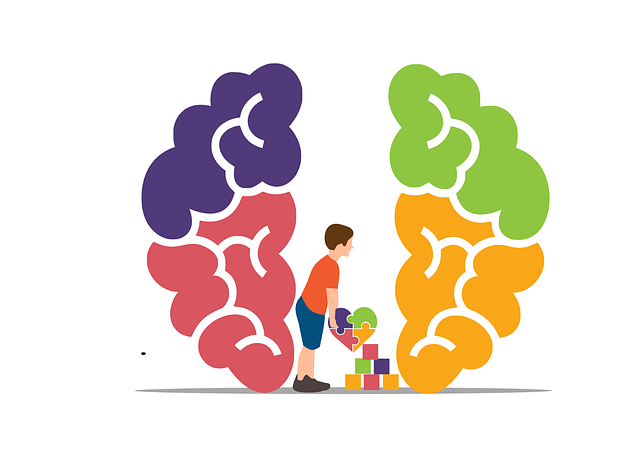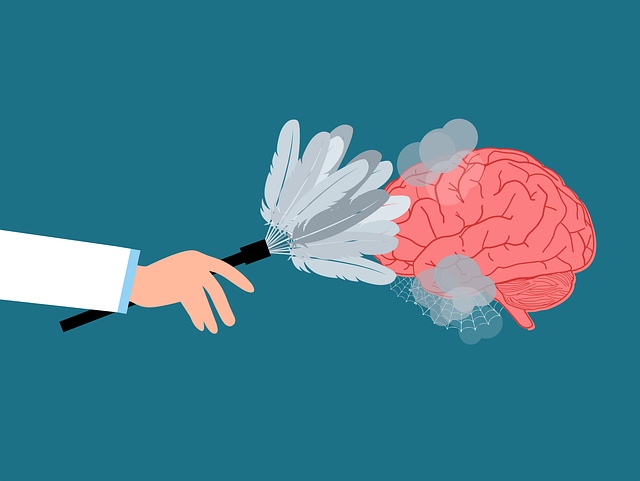Highlands Ranch Grief Counseling Therapy focuses on comprehensive risk assessment and personalized interventions. By understanding clients' unique circumstances, therapists identify potential mental health hazards like isolation or financial strain that could escalate grief. Mental wellness journaling and public awareness campaigns enhance care, while podcast series reach broader audiences. A multi-faceted harm minimization plan incorporates crisis intervention, resilience-building, and advocacy for systemic changes. Emphasizing Mind Over Matter principles, this approach prioritizes emotional regulation and safe environments, adapting to evolving client needs through holistic practices.
In the field of Highlands Ranch grief counseling therapy, risk assessment and harm minimization planning are indispensable tools for ensuring client safety and delivering effective support. This comprehensive guide delves into the critical components of these processes, from understanding the foundational concepts to practical implementation strategies. By identifying potential harms and developing robust minimization plans, practitioners can create secure environments that foster healing and growth.
- Understanding Risk Assessment: A Cornerstone of Effective Therapy
- Identifying Potential Harms in Highlands Ranch Grief Counseling Settings
- Developing a Comprehensive Minimization Plan: Strategies for Practitioners
- Practical Implementation: Ensuring Safety and Supportive Environments
- Continuous Evaluation and Adjustment: Adapting to Client Needs
Understanding Risk Assessment: A Cornerstone of Effective Therapy

Risk assessment is a fundamental aspect of effective therapy, serving as the cornerstone for any successful Highlands Ranch Grief Counseling Therapy program. It involves meticulously evaluating potential hazards and their likely impact on an individual’s mental wellness. By identifying risks, therapists can tailor interventions to build inner strength and mitigate adverse effects. This proactive approach ensures that clients receive personalized guidance, empowering them to navigate challenges with resilience.
Moreover, integrating mental wellness journaling exercises within therapy sessions enhances the risk assessment process. It encourages clients to reflect on their emotions, thoughts, and behaviors, providing valuable insights into their emotional landscape. This self-awareness becomes a powerful tool for both therapists and healthcare providers, enabling culturally competent care tailored to each client’s unique needs.
Identifying Potential Harms in Highlands Ranch Grief Counseling Settings

In Highlands Ranch Grief Counseling Therapy settings, identifying potential harms is a multifaceted process that requires a deep understanding of the client’s unique circumstances and emotional landscapes. Counselors must be vigilant in recognizing not only the immediate emotional distress but also the underlying factors that could exacerbate grief and turn into more significant issues. For instance, isolation, financial strain, or lack of social support can significantly impact an individual’s ability to cope with loss. By assessing these potential harms, counselors can tailor their approach, offering targeted interventions that address specific needs.
Highlands Ranch, with its diverse community, presents unique challenges in terms of public awareness campaigns development and trauma support services. Mental wellness podcast series production has emerged as a valuable tool in reaching a broader audience, providing information, and fostering open conversations about grief and healing. Integrating these resources ensures a comprehensive harm minimization strategy, complementing the direct counseling experience and contributing to a more supportive ecosystem for those navigating grief in the community.
Developing a Comprehensive Minimization Plan: Strategies for Practitioners

Developing a comprehensive harm minimization plan is an essential step for practitioners in Highlands Ranch Grief Counseling Therapy to ensure effective client support and promote mental health awareness. This strategy involves a multi-faceted approach tailored to individual needs, community resources, and potential risks identified during therapy sessions. By integrating Mental Health Policy Analysis and Advocacy into the planning process, therapists can advocate for systemic changes that address underlying factors contributing to harm.
The plan should encompass various elements such as risk assessment tools, crisis intervention techniques, and resilience-building strategies. Regularly reviewing and updating this document is crucial to adapt to changing client circumstances and emerging trends in Mental Health Awareness. Through proactive planning, practitioners can foster a supportive environment, enhance their interventions, and ultimately contribute to the well-being of their clients in Highlands Ranch and beyond.
Practical Implementation: Ensuring Safety and Supportive Environments

In implementing risk assessment and harm minimization plans, creating supportive environments is paramount. This involves integrating practical strategies that foster safety and emotional well-being. At Highlands Ranch Grief Counseling Therapy, we emphasize the significance of tailored interventions, such as crisis intervention guidance, to address unique challenges individuals or communities may face. By promoting Mind Over Matter principles, our approach equips people with effective tools for emotional regulation, empowering them to navigate stressful situations with resilience.
Through collaborative efforts and a holistic perspective, we ensure that both physical and psychological safety are prioritized. This includes implementing policies and procedures that proactively identify and mitigate risks, as well as providing accessible resources for crisis support. By fostering an environment that encourages open communication and offers specialized interventions, Highlands Ranch Grief Counseling Therapy aims to create a safe haven where individuals can heal, grow, and cultivate the mind-body connection necessary for overcoming adversity.
Continuous Evaluation and Adjustment: Adapting to Client Needs

In the dynamic field of Highlands Ranch Grief Counseling Therapy, continuous evaluation and adjustment are paramount. As client needs evolve and new challenges emerge, therapists must remain agile, continually assessing the effectiveness of their harm minimization strategies. This involves regular reflection on treatment outcomes, client feedback, and emerging research in stress management and self-care practices. By integrating these insights, therapists can refine their approaches, ensuring that interventions remain relevant and impactful.
Adapting to changing circumstances fosters a more responsive and personalized therapeutic environment. For instance, incorporating effective Stress Reduction Methods into the therapy process enables clients to develop robust coping mechanisms tailored to their unique needs. Through this adaptive approach, Highlands Ranch Grief Counseling Therapy can offer holistic support, empowering individuals to navigate grief while promoting overall well-being.
Highlands Ranch grief counseling therapy benefits greatly from a robust risk assessment and harm minimization strategy. By understanding potential risks, identifying harms specific to the setting, developing tailored minimization plans, and continuously evaluating these measures, practitioners can ensure safe and supportive environments for clients. This comprehensive approach not only enhances the effectiveness of therapy but also cultivates a secure atmosphere where individuals can find healing and support during challenging times.











